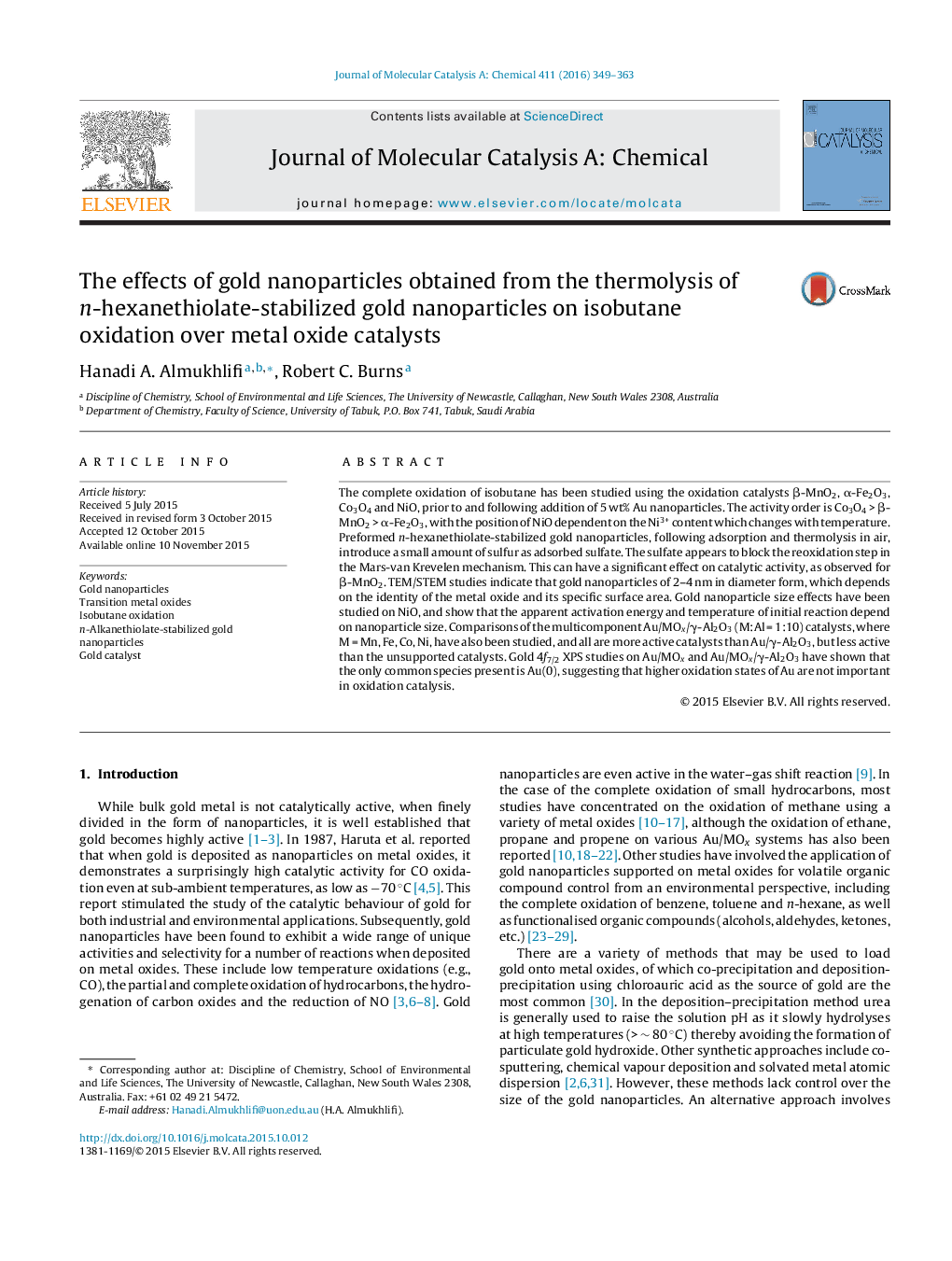| کد مقاله | کد نشریه | سال انتشار | مقاله انگلیسی | نسخه تمام متن |
|---|---|---|---|---|
| 64798 | 48370 | 2016 | 15 صفحه PDF | دانلود رایگان |

• β-MnO2, α-Fe2O3, Co3O4 and NiO are active catalysts for the complete oxidation of i-C4H10.
• Au nanoparticles obtained from n-C6SAu nanoparticles enhance catalytic activity.
• Poisoning effects are observed from adsorbed sulfate as a result of thermolysis in air.
• Au nanoparticle sizes depend on metal oxide, surface area and temperature of catalysis.
• Gold 4f7/2 XPS suggests that Au0 rather than Au+ or Au3+ are important in catalysis.
The complete oxidation of isobutane has been studied using the oxidation catalysts β-MnO2, α-Fe2O3, Co3O4 and NiO, prior to and following addition of 5 wt% Au nanoparticles. The activity order is Co3O4 > β-MnO2 > α-Fe2O3, with the position of NiO dependent on the Ni3+ content which changes with temperature. Preformed n-hexanethiolate-stabilized gold nanoparticles, following adsorption and thermolysis in air, introduce a small amount of sulfur as adsorbed sulfate. The sulfate appears to block the reoxidation step in the Mars-van Krevelen mechanism. This can have a significant effect on catalytic activity, as observed for β-MnO2. TEM/STEM studies indicate that gold nanoparticles of 2–4 nm in diameter form, which depends on the identity of the metal oxide and its specific surface area. Gold nanoparticle size effects have been studied on NiO, and show that the apparent activation energy and temperature of initial reaction depend on nanoparticle size. Comparisons of the multicomponent Au/MOx/γ-Al2O3 (M:Al = 1:10) catalysts, where M = Mn, Fe, Co, Ni, have also been studied, and all are more active catalysts than Au/γ-Al2O3, but less active than the unsupported catalysts. Gold 4f7/2 XPS studies on Au/MOx and Au/MOx/γ-Al2O3 have shown that the only common species present is Au(0), suggesting that higher oxidation states of Au are not important in oxidation catalysis.
Figure optionsDownload high-quality image (182 K)Download as PowerPoint slide
Journal: Journal of Molecular Catalysis A: Chemical - Volume 411, January 2016, Pages 349–363